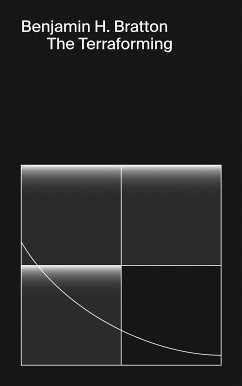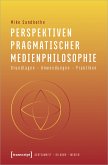The Terraforming is the comprehensive project to fundamentally transform Earth's cities, technologies, and ecosystems to ensure that the planet will be capable of supporting Earth-like life. Artificiality, astronomy, and automation form the basis of that alternative planetarity. This short book was written in July 2019. It is is an opening brief and manifesto for The Terraforming urban design research programme at the Strelka Institute in Moscow. It is a narrowly targeted polemic against dominant modes of planetarity and a rejoinder to inadequacies seen in how critical philosophy and design seeks to confront them. The title refers both to the terraforming that has taken place in recent centuries in the form of urbanisation, and to the terraforming that must now be planned and conducted as the planetary design initiative of the next centuries if true catastrophes are to be prevented. The term 'terraforming' usually refers to transforming the ecosystems of other planets or moons to make them capable of supporting Earth-like life, but the looming ecological consequences of what is called the Anthropocene suggest that in the decades to come, we will need to terraform Earth if it is to remain a viable host for Earth-like life. Planetarity itself comes into focus through orbiting imagining and terrestrial modeling technologies (satellites, sensors, servers in sync) that have made it possible to measure climate change with any confidence. We will explore a renewed Copernican turn, and how the technologically mediated shift away from anthropocentric perspectives is crucially necessary in both theory and practice. The Copernican turn is also a trauma, as Freud once suggested, but this is one that demands more agency, not less. The implications of the shift are perhaps counterintuitive. Instead of reviving ideas of 'nature,' we will reclaim 'the artificial'-not as in 'fake,' but rather 'designed'-as a foundation which links the mitigation of anthropogenic climate change to the geopolitics of automation. For this, urban-scale automation is seen as part of an expanded landscape of information, agency, labor, and energy that is part of a living ecology, not a substitute for one. As such, the focus of urban design research shifts toward the governance of infrastructures that operate on much longer timescales than our cultural narratives.
Dieser Download kann aus rechtlichen Gründen nur mit Rechnungsadresse in A, B, BG, CY, CZ, D, DK, EW, E, FIN, F, GR, H, IRL, I, LT, L, LR, M, NL, PL, P, R, S, SLO, SK ausgeliefert werden.









